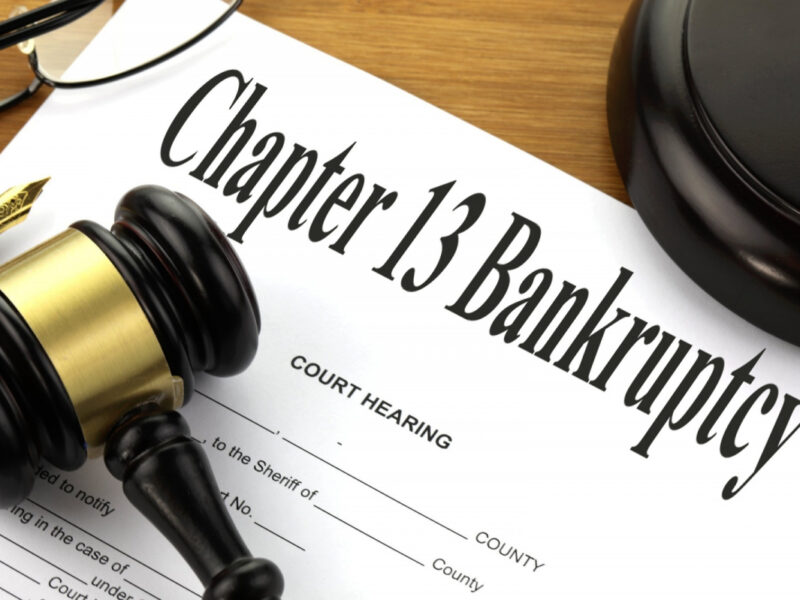Applicable law & procedure.
After confirmation of the chapter 13 plan, the court may grant a discharge to a debtor that has not completed payments under the plan only if:
(1) the debtor’s failure to complete such payments is due to circumstances for which the debtor should not justly be held accountable;
(2) the value, as of the effective date of the plan, of property actually distributed under the plan on account of each allowed unsecured claim is not less than the amount that would have been paid on such claim if the estate of the debtor had been liquidated under chapter 7 of [the Bankruptcy Code] on such date; and
(3) modification of the plan under section 1329 of [the Bankruptcy Code] is not practicable. 11 U.S.C. § 1328(b).
The court can grant the so-called “hardship discharge” only after notice and a hearing.
The chapter 13 hardship discharge discharges the debtor from all unsecured debts provided for by the plan or disallowed under section 502 of the Code, except payments to the holders of certain long-term claims and the kinds of debts specified in section 523(a) of the Code. Some common types of debts that are not discharged are listed on the back of Form 18FH.
Section 523(c) states that the debtor shall be discharged from the kinds of debts specified in section 523(a) unless, on request of the creditor to whom such debt is owed, the court determines that the debt is excepted from discharge under sections 523(a)(2), 523(a)(4), or 523(a)(6) of the Code. A complaint to determine the dischargeability of a debt in a chapter 13 case pursuant to section 523(c) must be filed not later than 60 days following the first date set for the meeting of creditors. Bankruptcy Rule 4007(c). The court may extend the time but the motion to extend must be filed before the time has expired.
If the debtor files a motion for a chapter 13 hardship discharge, the court is required to set a deadline for filing a complaint to determine the dischargeability of a section 523(a)(6) debt. Creditors must be given at least 30 days’ notice of the deadline. Rule 4007(d).
The court may not issue the hardship discharge until it has determined that there is no reasonable cause to believe (1) that section 522(q) of the Code may apply, and (2) that there is a pending proceeding of the type described in that section. 11 U.S.C. § 1328(h). Section 522(q) applies if (1) the debtor has claimed an exemption under state or local law in more than $136,8751 worth of property of the type described in section 522(p)(1) of the Code and (2) there is pending a proceeding in which the debtor may be found guilty of one of the types of felonies described in section 522(q)(1)(A) or found liable for a debt of the kind described in section 522(q)(1)(B).
An individual debtor who claims an exemption under state or local law in more than $136,875 of section 522(p)(1) property must file a statement as to whether section 522(q) applies. Rule 1007(b)(8). The court may determine that section 522(q) does not apply if the debtor has not filed a section 522(q) statement and no party has filed a motion requesting that the court make a determination under section 522(q) or section 1328(h). If the debtor is required to file the section 522(q) statement, the court may not issue the discharge until at least 30 days after the statement is filed. Rule 4004(c)(3).
Section 524 of the Bankruptcy Code sets out the effect of a discharge in a chapter 13.
Rule 4004(f) provides for the registration of a certified copy of the discharge in another district.
Section 1328(e) of the Code states that a party in interest may request revocation of a chapter 13 discharge if the discharge was obtained through fraud and the requesting party did not know of the fraud until after the discharge was issued. The request must be filed before one year after entry of the discharge.
General Information for the Clerk.
Form B18WH is required in a chapter 13 case in which the debtor receives a so-called “hardship discharge” pursuant to section 1328(b) of the Code despite not completing the plan payments. Form 18W may be used if the debtor has completed payments under the confirmed plan.
Notice and a hearing are required before the court grants a chapter 13 hardship discharge.
11 U.S.C. § 1328(b). When the debtor files a motion for a chapter 13 hardship discharge, Bankruptcy Rule 4007(d) requires that the court fix the time for filing a section 523(a)(6) dischargeability complaint and give creditors at least 30 days’ notice of the deadline. Rule 4007 does not provide for a new period to file other types of dischargeability complaints when a chapter 13 debtor requests a hardship discharge.
